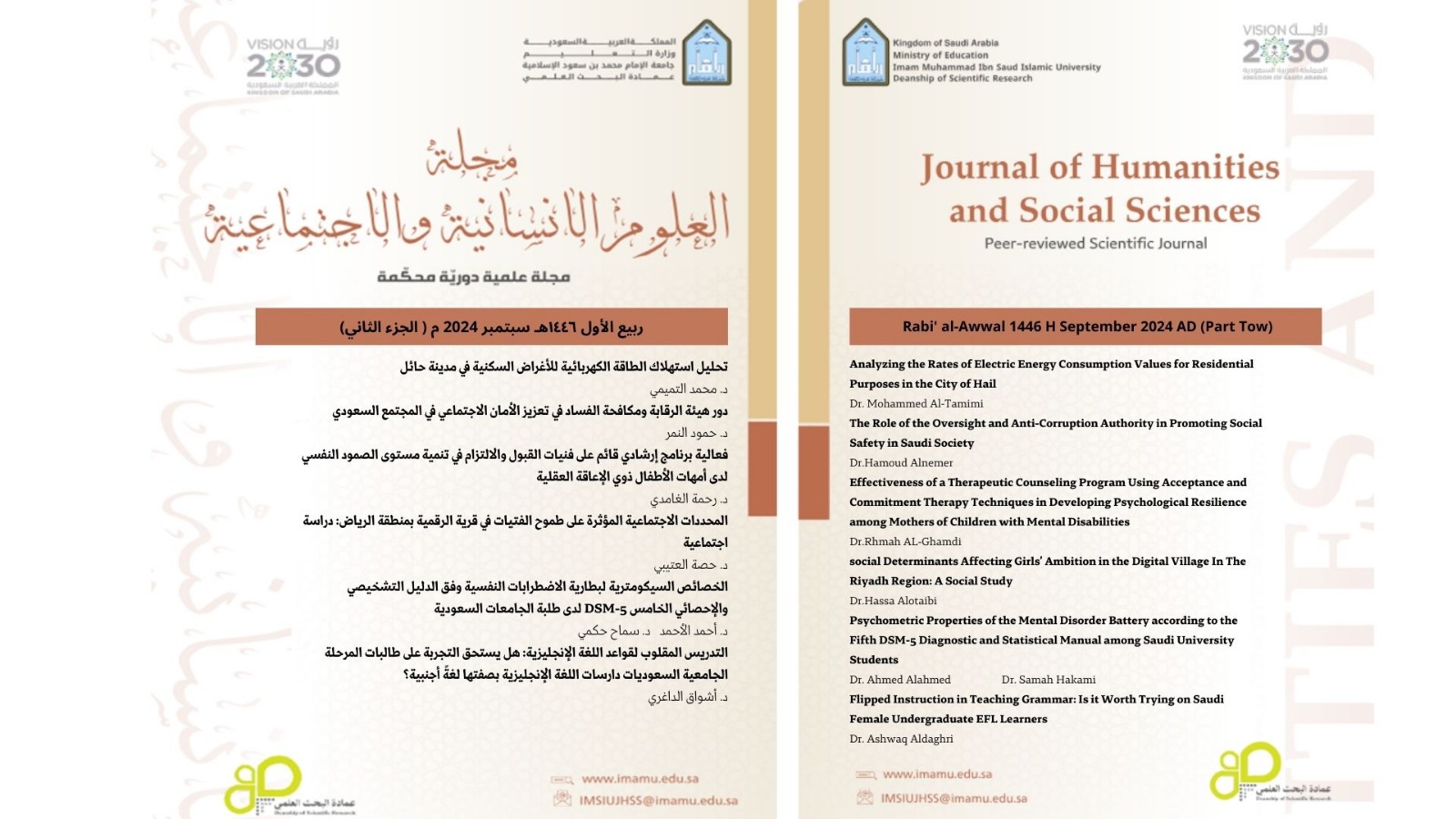The role of National Anti-corruption Commission in spreading a sense of safety among the Saudi society
Keywords:
Social Role, Control Authority, Anti-Corruption, Development, Social Security, Saudi SocietyAbstract
ABSTRACT: The study aimed to identify the areas of combating corruption in Saudi society through the role of the Control and Anti-Corruption Authority, determine the causes of corruption in Saudi society, and identify the appropriate modern methods to combat corruption in the community. Additionally, it aimed to understand the impact of anti-corruption efforts on achieving social security in Saudi society and whether there were statistically significant differences between genders in the following areas: "Prominent areas of combating corruption," "Prominent causes of corruption in Saudi society," and "Prominent effects of anti-corruption efforts on achieving social security."
This study belongs to the descriptive research style, which aims to describe the role of the Control and Anti-Corruption Authority in developing the sense of social security in Saudi society. The study relied on the social survey method with a random sample of 646 Saudi residents working in the Riyadh region, in addition to using a questionnaire as a data collection tool.
The study's results confirmed that the areas of combating corruption in Saudi society through the role of the Control and Anti-Corruption Authority were rated as high, with an overall mean of 2.71 and a general standard deviation of 0.67. The causes of corruption in Saudi society were also rated as high, with an overall mean of 2.88 and a general standard deviation of 0.78. Moreover, the methods of reporting corruption in the community were rated as high, with an overall mean of 3.96 and a general standard deviation of 0.85. Furthermore, the impact of anti-corruption efforts on achieving social security for Saudi society was rated as high, with an overall mean of 3.97 and a general standard deviation of 0.90.
The study also revealed statistically significant differences between males and females in favor of females regarding "money laundering" as one of the forms of corruption. However, there were no statistically significant differences between the two genders regarding "abuse of official authority" and "fighting bribery," indicating a shared perception of corruption and its forms. The results of the study also indicated a complete agreement between males and females regarding the causes of corruption. Additionally, the study uncovered a state of social security among both males and females as a result of anti-corruption efforts.




